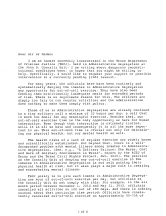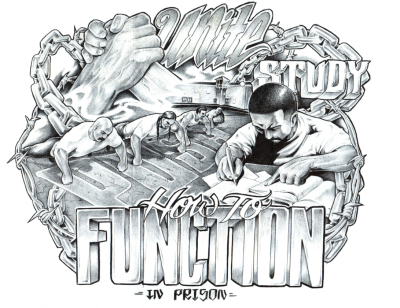by Informacioni Sekretarijat of Revolutionary People’s Party-Front
Reprinted from
http://en.rnp-f.org
Although the Marxist-Leninist theory advocates the validity of all
methods of struggle for the sake of the revolution, one particular
method is often ignored or frowned upon: hunger strikes. Western
worker’s movement is proud of the acts of self-sacrifice by its
militants as it’s the basis of the most important historical victories,
yet hunger strike is often seen as a waste of human lives with little or
no value for the class struggle.
Such is the general opinion of the hunger strike led and organised by
Party-Front of Turkey (DHKP-C) in the period of 2000-2007, also called
“Death Fast”. Seven years long, Death Fast has claimed lives of 122
revolutionaries and it was considered to [be] a victory. Something that
fellow communist parties very often criticise and questioning the
effectiveness of such methods of struggle.
However, to entirely understand and properly evaluate the Death Fast, it
would be incorrect to limit ourselves to the superficial manifestations
of the whole process. Given a perspective of over a decade since its
beginning, we are in a good position to see its effects and give more
clarity to the historical circumstances in which it took place. Let us
consider it from the historical perspective, the perspective of the
class contradictions and the state the revolutionary movement in Turkey
was in during that period.
Historical Background
The years between 1999 and 2001 were politically very interesting
years. There were a couple of reasons for this:
-
Turkish state was in a state of permanent crisis. Since almost 10 years
there were nothing but impotent coalition governments that failed to win
the consent of the people. They were forced to resort to violence but
this quickly made them unpopular, which, in the long run, undermined
their legitimacy.
-
In February 1999, Kurdish leader Ocalan was captured and delivered to
Turkey by CIA. During his trials in 1999 he made a surprisingly
submissive defence and offered collaboration to the state. This made a
serious negative impact on the Kurdish movement and the other left-wing
movements that are tailing the PKK. What had been experienced and felt
after the collapse of Soviet Union inside the European communist
parties, was now being experienced in Turkey after 10 years. Since 1990,
apart from a couple of movements, majority of the radical left were
reduced to legal, weak social democratic parties. And the imprisonment
of Ocalan meant to deliver the finishing blow:
-
“Everything was in vain, state was too powerful to beat, armed struggle
brought nothing but pain, the only solution was to be a member of EU, so
that the country might be democratized.” This was the general mood among
the wide reformist circles.
-
In August 1999, a huge earthquake hit the Marmara Region which was the
most industrialized, most populated part of Turkey. It killed
approximately 50,000 people. Three months later another earthquake with
the same severity hit the same region for the second time. The state was
incapable of bringing any aid. They just swept the rubble of the
buildings off towards the sea with the dead bodies of the people inside.
It was soon revealed that the corrupt businessmen who were then backed
by the state built the collapsed buildings. People were angry, but the
revolutionary alternative was weak, stuck in prisons and some
revolutionary neighbourhoods with some armed cells here and there.
-
In September 1999, the state forces launched a violent attack against
Ulucanlar Prison. This turned into a massacre as the military forces
killed 10 revolutionary prisoners from 4-5 different organizations and
wounded hundreds of prisoners with real bullets. This was done to send a
message to the revolutionary movements: “It is your turn.”
By the end of 1999, the balance of the class forces was like this:
-
There were the weak, scattered and ideologically low self-esteemed
reformists, begging for EU involvement.
-
There was the demoralized Kurdish movement, with its leader in prison,
openly talking about disarming and disbanding the organization.
-
There were the ruling classes with their strong military and police
forces, but with a withering hegemony over the desperate population who
has been looking for an alternative. And after the earthquakes not only
the political crisis but also the economic crisis was at their doorstep.
And there were the radical/armed/revolutionary movements:
-
Some of them, like Maoists, were still obsessed with the old strategy of
storming the cities from the countryside, whereas the 70-80 percent of
the population had now started to live in metropolitan cities rather
than villages. They were also in a state of crisis and getting divided
into smaller organizations because of disputes on strategy. Some other
organizations were opportunists with a not-so-clear ideology about how
to make a revolution: Now you see them heavily criticising the Kurdish
movement, and now you see them tailing the PKK. Gradually sinking into
legalism, reconciliation, hesitation.
-
Finally there was the Party-Front (P-C). Although not as physically
strong as the Kurdish movement, P-C had a kind of ideological hegemony
over the other radical/revolutionary organizations and was constantly
pushing them to take a solid attitude against the establishment. This
was the case in 1996 Hunger Strikes and in the other prison resistances
after it. When the other political parties stepped back or showed some
signs of hesitation, militants of P-C encouraged them, criticised them
in the prisons. And exposed them in its publications when they stepped
back, which would harm their prestige among their own people.
In the year 2000 the crisis was deepening, the ruling classes knew that
they had to take the necessary precautions. They were done with the
reformists, they thought that they were done with the Kurdish movement
and now, if these revolutionary/radical movements could not be bowed
down, they would become an alternative for the desperate Kurdish and
Turkish masses in case of a crisis. And if you wanted to destroy them,
you had to start from their ideological hegemons, the
P-C, that still continued to preach revolution, armed struggle
and anti-imperialism.
Thus, the state prepared a plan to destroy the revolutionary discipline
in the prisons: It decided to transform the existing prison system into
a high-security prison system where the political prisoners would be
isolated from each other in small cells. In this way, the ruling classes
were hoping to destroy the organizational ties among the prisons,
turning the political prisoners into isolated individuals.
Then came December 19, 2000. 20 prisons were simultaneously raided for
three days with nearly 9000 soldiers. They used more than 20,000 gas
bombs, thousands of real bullets against the unarmed prisoners. As a
result 28 prisoners were killed, nearly 600 prisoners became permanently
disabled in 3 days. The rest of the prisoners were forcedly sent to
high-security prison cells.
It was not an issue of physical destruction alone. Compared to 60
million population at that time, there were only approximately 10
thousands of political prisoners in total. But still the prisons were
like the headquarters of ideological production. Prisoners were writing
[a] majority of the articles and books, composing songs, heavily
training the future militants. Imprisoning stopped being a punishment
and the militants knew that if they were sent to the prison, near to
their comrades, they would undergo an extensive Marxist-Leninist
training and continue their revolutionary activity.
On the other hand, the ruling classes at that time were trying to spread
the ideology of desperation as opposed to revolution. “Nothing is worth
to sacrifice yourselves” they were saying, “especially for socialism and
revolution which has already collapsed”. It was the end of history. The
entire world was giving up. IRA in Ireland, ANC in South Africa, FMLN in
El Salvador, Palestinian Liberation Organization, PKK in Turkey. The
dream was over.
And one year after the Hunger Strikes began, 9/11 happened in US. Bush
has declared the New World Order and clearly put that [b”“you are either
with us, or against us”.
What would it mean if the prisoners had submissively accepted this
menace? Since 1980s it was one of the main tenets of the revolutionaries
that if you are left in a position where you don’t have any weapons to
fight, you should better die than to surrender.
P-C knew that from past experience: Those who surrendered to the
impositions of the 1980 Military Junta were destroyed. They either
became reformist, legal organizations or their militants were
transformed into liberal, even right-wing intellectuals. Yes, they
physically continued to live, but they had had a brain death. They had
become the extensions of ruling class ideology.
They were the best propaganda materials for the ruling classes:
“Look at these so called leaders of proletariat! They are telling
you to fight until the end, but they do not want to make even a smaller
sacrifice for their own cause. Is this what you are going to die for?
Don’t be stupid young people.”
However, when people resisted and died (either in hunger strike or an
armed action) it made a huge impact, firstly among its comrades and
among the people. It was the same in Kizildere in 1972
when Mahir Çayan and his comrades were massacred. The
entire organization had been destroyed with them. But in just 2 years,
hundreds of young militants swore to take their revenge. It was the same
in 1984 and 1996 hunger strikes.
That was the basic thinking behind the hunger strikes: If you make the
necessary sacrifice, you may die but at least it can make an impact that
deeply influences the others to carry on.
Death Fast Logic
Two main causes can be emphasised over the others to explain the logic
behind the death fasts:
-
Death or permanent injuries were the risks of the hunger strike. But the
same risk is carried by any other revolutionary activity, especially the
armed one. On the contrast, the submission to the government and
accepting high security prisons would result in what the government
really aimed at: to destroy the organisation from within and incite the
ideological crisis. The revolutionaries in prison that preached heroic
self-sacrifice and struggle would be discredited in the eyes of the
people outside of the prison and in the eyes of the guerillas and
militants who risk their lives on daily basis.
-
By design, these prisons were intended to interrupt the communication
between the revolutionaries and isolate them from their comrades, from
the external world, so that their thinking and behavioural habits would
change and they will give up the idea of revolution later on. They are
meant to destroy the revolutionary fervour and discipline, something
which the organisation could not submit to. In such a case, giving up
would mean willingly destroying the tradition of resistance inside the
prisons, for the inexperienced, incompetent young militants would sink
into depression and despair. What should they do, even when their
“leaders”, “wise comrades” surrender? The high security prisons would be
seen as “hell [on] earth”, as the horrible factories that produce tamed,
subdued ordinary people out of the fervent, audacious revolutionaries
once you go in. You can force the people to do everything, once you
instil this “fear of imprisonment” in their minds.
The hunger strikes started [on] 20th of October 1999, after the state
openly declared its new prison policy, and went on until 2007, when the
state agreed to show some flexibility in its isolation policy.
From this perspective, we can say that hunger strike was a political
victory. Because:
-
Revolutionary movement and its militants managed to protect the
tradition of resistance inside the prisons. Now in every single high
security prison there is a very strong network of revolutionary
prisoners who wake up, do exercise, study, write, and paint – according
to one single schedule, although they may not see each other for years.
They developed innovative and complex networks of communication inside
the prison. In the former prison system, it is said that 60% of the
revolutionary prisoners resumed the struggle when they were released,
whereas this rate is now 80% according to some sources. The massacre and
the new prison system created the opposite results for the ruling
classes thanks to this resistance.
-
Outside, the memories and sacrifices of resistance continued to live and
both ideologically and emotionally strengthened the cadres, militants
and sympathisers of the revolutionary movement. It was clearly shown
that socialism is a cause that is still worth to die for and the
revolutionaries in Turkey were ready to do this, while the Islamists and
patriots who always talked about “making sacrifices for Allah or for the
homeland” became part of the establishment.
-
Regarding the other radical/revolutionary movements: 15 years later
after the prison massacre and 8 years after the end of the hunger
strike, now there is a huge ideological gap between the other left and
the revolutionary movement, the P-C. Some of these organizations that
refused to take part in the resistance splintered into pieces. Some of
them went through an ideological crisis and legalised themselves,
liquidated their illegal organizations. Many of them started to tail the
Kurdish movement and became part of HDP as the Greek reformists did with
Syriza in Greece. Revolution stopped being the main purpose, whereas
imperialism stopped being their main enemy; they started to look for
some excuses when the Kurdish movement initiated an open collaboration
with US in Syria. For years they have not carried out a single legal
democratic, mass campaign apart from their campaigns for the corrupt
elections. Marxism-Leninism was thrashed. Their mass base waned.
When the hunger strike was ended 2007, none of the initial demands of
the revolutionaries were accepted. A revised version of the demands,
which involved the freedom to see other people for 10 hours a week, was
agreed on. Compared to the main aim of the ruling classes to isolate the
revolutionaries, to bow them into complete submission, it this was an
important achievement too.
Conclusion
As to the question: “did it worth to sacrifice more than a hundred
people just for this?” while ignoring the political and ideological
victories of the Great Resistance. The purpose was to put an end to the
revolutionary ideology in Turkey and they failed in doing this. Turkey
did not become the next Guatemala, Palestine or South Africa as they
wanted it to be.
Hope survived and although the revolutionary movement came out weakened,
it did survive and grew stronger over the years. Now there are
pro-Party-Front groups emerging in different fields of the struggle.
There is a music band called Grup Yorum that organizes public concerts
all around Turkey where they sing their revolutionary songs with
hundreds of thousands people. An institution called Engineers and
Architects of the People started to organize inside the revolutionary
neighbourhoods, trying to put forward an alternative way of living with
popular assemblies, public gardens, wind turbines to allow the community
to produce their own electricity. There are attempts to organize the
shopkeepers within a cooperative so that they can resist against the
monopoly of the shopping malls and big supermarkets. In the last couple
of years, a series of successful worker resistances were supported by
the Revolutionary Worker Movement, which declares itself to be
pro-Party-Front.
On the other hand, Party-Front itself continued its
armed activities, some of which are widely publicized in the
international media. It has militia bands in the main revolutionary
quarters of Istanbul which fight against gangs, drug dealers and the
state forces. These activities must have attracted the attention of the
imperialists, so that some analysts started to speak of Party-Front as
an “emerging threat” in Turkey. The US State Department issued a warrant
of arrest for whom they think to be the top leaders of Party-Front.
Imperialism declared that “up to 3 million dollars” will be rewarded to
those who assist in capturing these people, whom the US considers to be
the “most wanted people in Europe”.
We will see what will come up in the following years.
With Solidarity.
Bahtiyar Safak

MIM(Prisons) adds: We are reprinting this analysis from
http://en.rnp-f.org because of the relevance to conditions and struggles
within Amerikan prisons. Our comrades behind bars sometimes find
themselves in a position where a hunger strike is one of only a few
potential avenues of protest against conditions that are brutal and
often deadly. This article demonstrates the potential successes that can
be gained from long-term hunger strikes.
However, it MUST be noted that these strikes in Turkey were in a very
different political context than the one faced by prisoners in the
United $tates. In Turkey in 1999 there were relatively large networks of
revolutionary organizing in the prisons and a solid (and armed) network
of support outside. Without those conditions the sacrfices made would
not have had the same impact. In our current conditions in prisons in
the United $tates we are not anywhere close to this level of
organization. Hunger strikes in U.$. prisons are not focused on
protecting such advanced political activity and organization behind
bars, rather they are used to gain reprieve from conditions of torture
and create opportunities for some organizing. Because of these
differences we can not simply apply this analysis directly to our
situation.
Our knowledge of the RNP-F is limited. We applaud what little we have
seen of their work and look forward to learning more about their
political line and practice.












